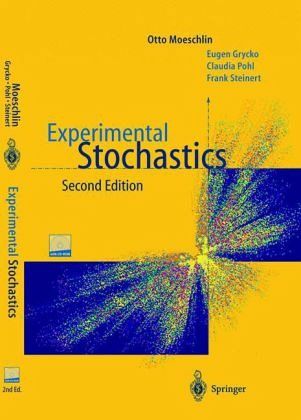Nicht lieferbar

Experimental Stochastics 2.0, 1 CD-ROM
For Windows 95/98/2000/ME/XP
Collab.: Eugen Grycko, Claudia Pohl, et al.
Versandkostenfrei!
Nicht lieferbar
This electronic monograph deals with the generating and testing of artificial random numbers and demonstrates their applications in practice. Artificial random experiments allow to treat a large variety of problems. The software is organized according to areas of subjects: artificial randomness, stochastic models, stochastic processes, evaluation of statistical methods. The examples chosen range from the control of traffic lights at road bottlenecks to Maxwell's law on the velocity distribution of gases. The presentation of the material is done via appropriate computer visualization, and the t...
This electronic monograph deals with the generating and testing of artificial random numbers and demonstrates their applications in practice. Artificial random experiments allow to treat a large variety of problems. The software is organized according to areas of subjects: artificial randomness, stochastic models, stochastic processes, evaluation of statistical methods. The examples chosen range from the control of traffic lights at road bottlenecks to Maxwell's law on the velocity distribution of gases. The presentation of the material is done via appropriate computer visualization, and the theory behind the experiments is given in both the electronic component and the accompanying booklet. This product, presenting many well-prepared simulations, will be very useful for instructional purposes.



